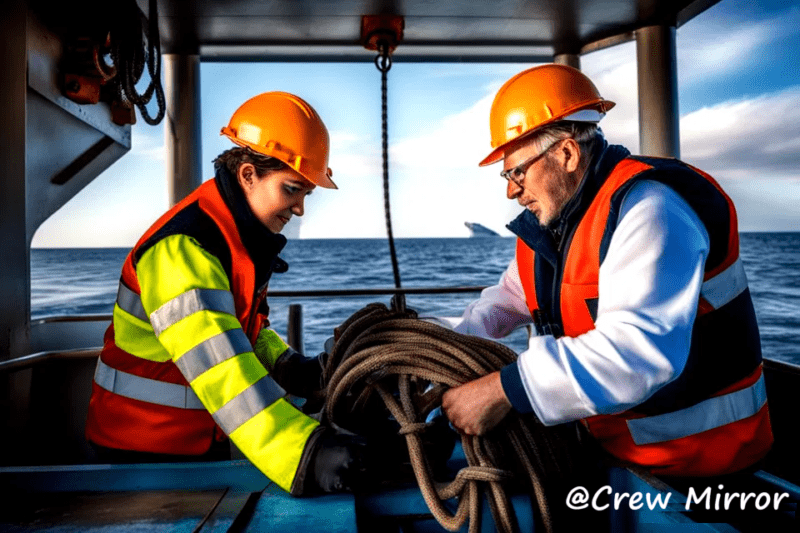The Crucial Role of Seafarers in Decarbonizing the Maritime Industry
Introduction:
The maritime industry plays a vital role in global trade and transportation, but it also contributes significantly to carbon emissions and environmental degradation. In the face of a climate crisis, there is an urgent need to decarbonize the maritime industry and transition to more sustainable practices. Seafarers, as important stakeholders, play a critical role in the implementation and promotion of sustainability measures.
Sustainability Initiatives in the Maritime Industry:
Sustainability in the maritime industry encompasses a wide range of initiatives and technologies aimed at reducing greenhouse gas emissions, minimizing pollution, and preserving marine ecosystems. The International Maritime Organization (IMO) has set ambitious targets to reduce carbon emissions from shipping by 40% by 2030 and achieve zero emissions by the end of the century.
Role of Seafarers in Decarbonization:
Seafarers, as individuals who operate and maintain ships, play a crucial role in achieving sustainability goals. They are at the forefront of implementing sustainability measures on board ships and are instrumental in leading the industry towards a greener future. Seafarers have the potential to make a significant contribution to reducing emissions through daily tasks such as optimizing fuel consumption and managing waste.
Adoption of Cleaner Fuels and Alternative Propulsion Systems:
Seafarers can contribute to decarbonization by adopting cleaner fuels such as LNG, biofuels, or hydrogen and ensuring their safe and efficient use on board ships. Traditional marine fuels are major sources of carbon emissions and air pollution, making the switch to cleaner alternatives essential for reducing environmental impact.
Energy Efficiency Technologies and Practices:
Energy efficient technologies and practices play an important role in reducing emissions and improving sustainability. Seafarers can contribute to energy efficiency by optimizing ship operations, keeping equipment in good condition, and following fuel efficiency best practices. This includes measures such as slow steaming and the use of energy-efficient technologies like LED lighting and waste heat recovery systems.
Waste Management and Pollution Prevention:
Seafarers are responsible for implementing waste management systems on board ships to prevent pollution and protect marine ecosystems. Proper waste separation, recycling, and disposal in accordance with international regulations are essential tasks that seafarers undertake to manage waste and pollution effectively.
Raising Awareness and Promoting Sustainability:
Seafarers play a crucial role in raising awareness and promoting sustainability in the industry. By sharing knowledge and experiences, they can inspire colleagues to adopt sustainable practices and work with industry stakeholders to advocate for policies that support sustainability in the maritime industry.
Training and Education:
Training and education are essential to empower seafarers to effectively implement sustainability measures on board ships. By providing the necessary skills and knowledge, training programs on energy efficiency, waste management, and environmental regulations can help seafarers drive positive change in the industry.
Conclusion:
Seafarers play a critical role in decarbonizing the maritime industry and promoting sustainability. By adopting cleaner fuels, energy-efficient technologies, waste management systems, and sustainable practices on board ships, seafarers can help reduce emissions, minimize pollution, and protect marine ecosystems. With their dedication and commitment, seafarers can lead the way towards a greener and more sustainable maritime industry.
Share it now










